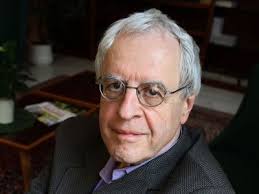
In his essay, “Notes on Poetry and Philosophy,” Charles Simic takes a shot at defining poetry. It is a moving target, to say the least. One that zig-zags. But that hasn’t stopped the poets and the philosophers from trying. Let’s listen in on an excerpt from Simic’s essay:
“Poetry is not just ‘a verbal universe that looks inwardly on itself,’ as someone said. Neither is poetry merely a recreation of experience. ‘It was and it was not,’ is how the old storytellers used to begin their tales. It lies to tell the truth.
“Mallarmé thought there were two kinds of language: parole brute, which names things, and parole essentielle, which distances us from things. One serves representation and the other the allusive, fictive world of poetry. He’s wrong. It’s not that clear-cut. If anything, it’s both. Poetry is impure. I don’t think Heidegger understands this either.
“The poem is an attempt at self-recovery, self-recognition, self-remembering, the marvel of being again. That this happens at times, happens in poems in many different and contradictory ways, is as great a mystery as the mystery of being itself and cause for serious thought.”
So, there. Some homework for you. Define poetry by giving it some serious thought. And good luck to you, because you’re going to need it.
As the prophet Peggy Lee once put it: Ain’t we got fun?